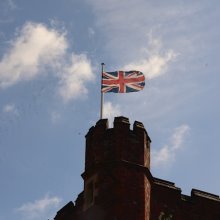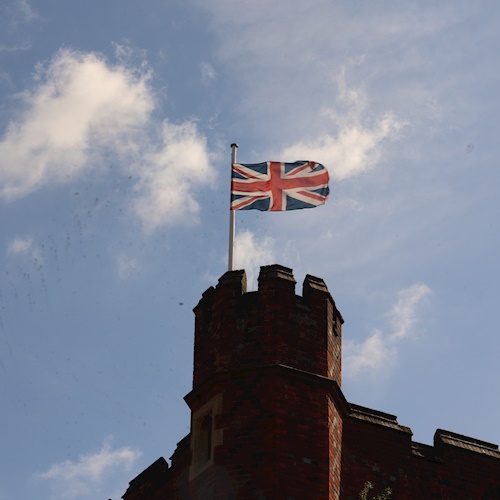
In our Whole School Assembly on Tuesday 6 May, we took a moment to reflect on one of the most significant dates in European history. Victory in Europe Day, or VE Day, is celebrated on 8 May and two of our Year 12 history pupils – Otto Berg De Kerangal and Elizabeth Montgomery-Allsop – spoke to our pupils about it. Their words, in particular Elizabeth’s powerful ones, are a reminder of how much an impact World War 2 has had on past and present generations, and why we should continue to remember today's VE Day.
Otto said:
‘Victory in Europe Day, also called VE Day, has been celebrated every year since 1945 on the 8 May - the day that World War 2 came to an end in Europe and Nazi Germany officially surrendered to the Allies. Although the war in the far east and Pacific lasted until Japan's capitulation in September 1945, VE Day was a significant turning point. World War 2 claimed the lives of up to 70 million people, including both military personnel and civilians. The United States, the United Kingdom, the Soviet Union, France, and other countries were part of the Allied forces that helped win the war. To commemorate the victory and to honour those who died, people in Europe held street parties, parades, and celebrations on VE Day, which is a tradition that continues today.’
Elizabeth added:
‘Why is it important to remember VE day? There are many reasons why we should continue to remember this day. World War 2 was not just any other war. It saw millions die, whether that be those fighting, civilians, as well as the largest mass genocide of a group of people.
With the end of war in Europe, it meant peace for Europe after five long and hard years of fighting. Soldiers could finally return home and as well as the defeat of Nazi Germany, it meant putting a stop to their mass genocide of Jewish people and ethnic groups. This is important to me not only because I care so much about history, but because I am a Jew. My family originally are from Poland and under Nazi occupation, around 58 members of my family were either sent to death camps or concentration camps - the youngest of them, Elisheva, being 4 or 5. Elisheva is just one of the millions the Nazis killed. Of the 58 that were sent to these camps, only 13 survived the Holocaust.
VE Day symbolises a lot for me and my family. It is a day of thankfulness, reflection, and gratitude that Hitler’s plans failed and that we are still here. As this is a day of thankfulness and reflection, I would like to say thank you to your brave family members who fought so hard to defeat the Nazis, whether they were soldiers who risked their lives on a battlefield, or the nurses who tended to the sick and wounded. Without their help and the war effort and the defeat of Nazi Germany, it would be unlikely that I would be standing here today talking to you all. So please remember this day. Remember VE day, not just for peace in Europe, but for those that fought and lost their lives to bring peace. But also, remember with pride what the allies fought so bravely for. Remember them helping to free the Jews from the Nazi regime and their systematic mass murder. Remember the six million Jews they killed. Remember 70 million that died as a result of this war. This is why it is important to remember VE day.’








Sq.jpg/Prefects2024_25(1)Sq__500x500.jpg&command_2=resize&height_2=85)












